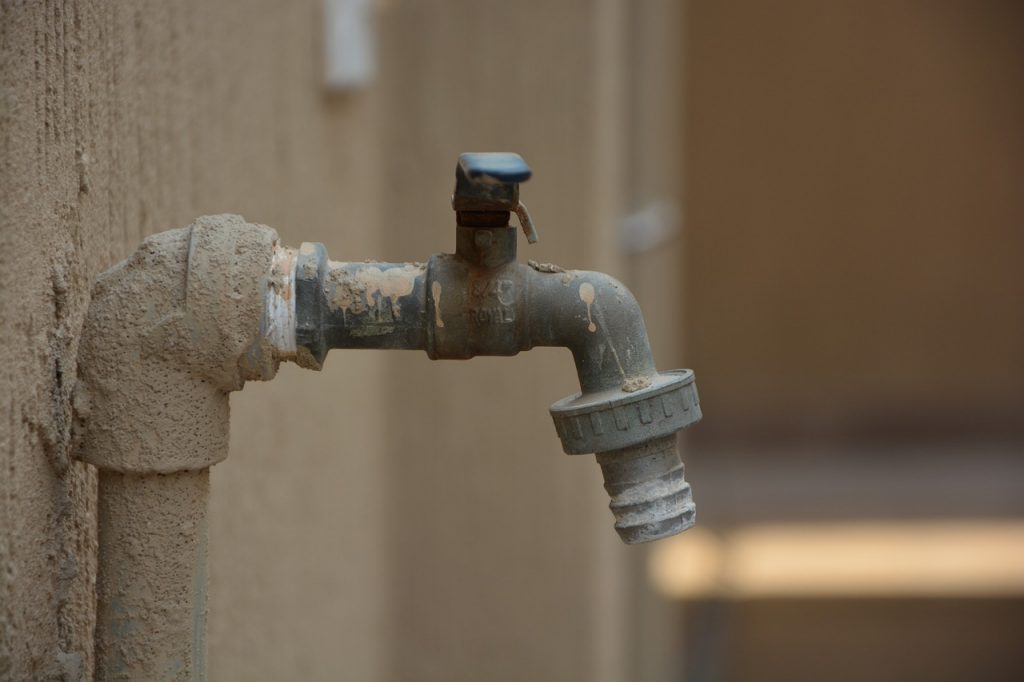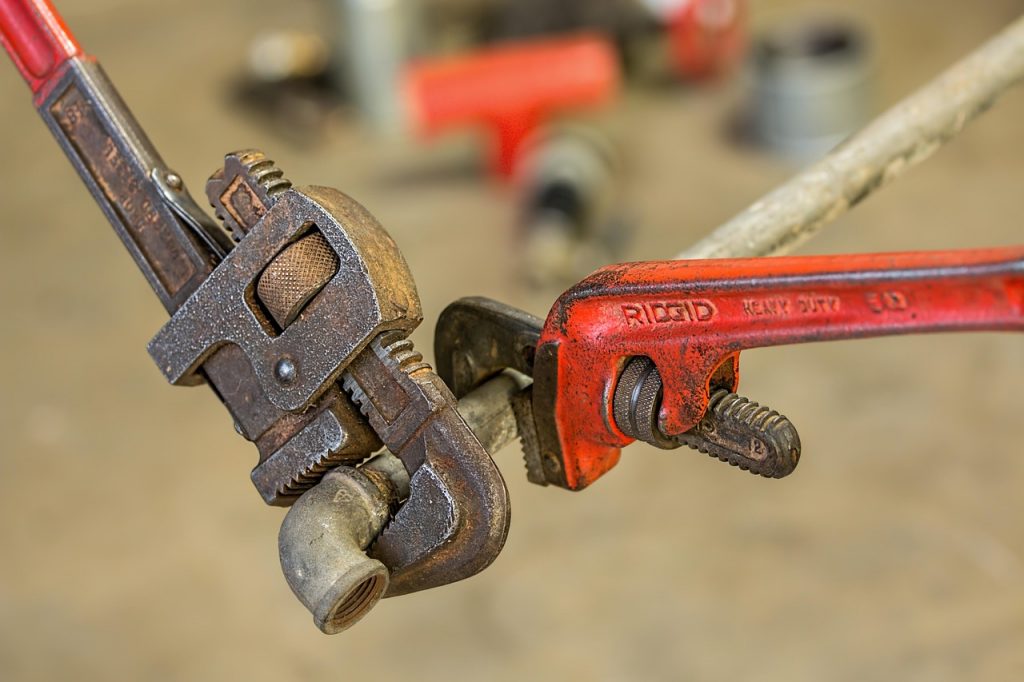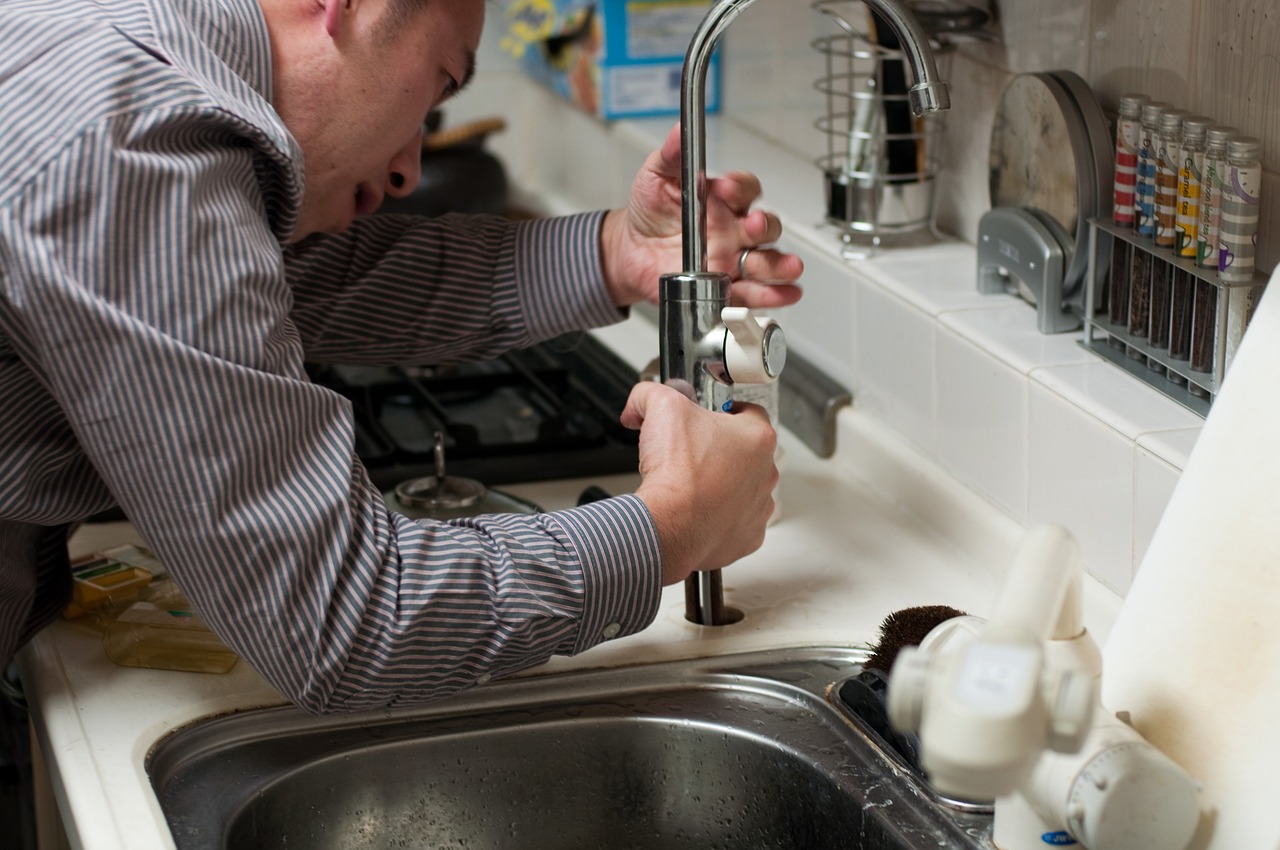How much does a plumber make in Germany? The profession is considered a well-paid and stable gig in the country, attracting talented blue-collar experts from other parts of the EU. As the demand increases for skilled plumbing technicians, wages also get more competitive and the opportunity for stable employment are also at an all-time high.
As you might have guessed, this article is all about the plumber wage in Germany, focusing on different aspects of the earning potential and the different factors that influence how much you can get paid working as a plumber in Germany.
How Much are Plumbers Paid in Germany?
Data suggests that the gross average plumber salary in the country is €56.278. So, how much do plumbers make in an hour here? The numbers translate into an hourly rate of €27. To be more specific, entry-level experts earn around €40.936, while senior professionals (with more than eight years of experience) can earn as much as €69.047.

Source: Pixabay
When we take the median salary, then the monthly earnings of a German plumber would equal an attractive €4,689.83.
However, other sources cite more realistic and modest earnings. On that note, here’s a detailed breakdown of the germany plumber pay scale in 2026:
| Salary Type | Amount (EUR) |
| Average Annual Gross | €25,220 |
| Average Monthly Gross | €1,418 |
| Median Annual Salary | €17,020 |
| Median Monthly Salary | €1,418 |
| Lowest Annual Salary | €2,562 |
| Lowest Monthly Salary | €563 |
| Highest Annual Salary | €25,220 |
| Highest Monthly Salary | €5,114 |
Please note that these plumber salaries are ballpark figures with varying factors influencing the numbers.
Things That Affect The Average Plumber Salary In Germany
A skilled sanitary technician’s salary usually depends on several factors. Here are some of the main aspects that may determine your earnings:
1. Level of Experience
Seniority, or the years of experience you have will most often make a large difference in how much you will be earning. Simply put, the more years you work as a plumber, the more your salary will grow.
| Experience Level | Yearly Pay | Monthly Pay |
| Starting (0-2 years) | €8,420 | €701.67 |
| Intermediate (2-5 years) | €9,960 | €830.00 |
| Experienced (5-10 years) | €17,100 | €1,425.00 |
| Expert (10-15 years) | €18,280 | €1,523.33 |
| Senior (15-20 years) | €19,060 | €1,588.33 |
| Master (20+ years) | €22,540 | €1,878.33 |
These figures represent rough averages. That said, in Germany, the plumber salary can also increase considerably with certifications and specialisations.
2. Education and Certifications
While nothing tops practical experience, specialisations and additional professional education can greatly boost your earning potential. According to the gathered data, 71% of plumbers in Germany have a high school education, which means that their average salary would hover around €7,800. However, if you add a certificate or diploma to it, the average salary of a plumber jumps to €13,560. Lastly, a plumber in Germany with a bachelor’s degree may be able to earn around €23,660.
Beyond education, you can also get additional certifications that tip the pay scale. On average, you may earn up to 25% above the plumber’s average salary. For instance, gas fitters and pipe fitters are certified experts, along with plumber technicians who can install and maintain sustainable water systems, and advanced cooling and heating systems.
Vocational trainings (Ausbildung) are often offered on-the-job, allowing you to perfect and expand your skills while getting paid.
3. Workplace
How much does a plumber earn in Germany? How much you can make will also highly depend on the work arrangements you settle in.
You probably already know the Government vs Private Sector salary debate. While working in the public sector may seem like a great idea in Germany (as government workers earn 8% more for the same role on average), it’s a more rigid environment, with probably less attractive conditions for foreign experts who are just moving to the country.
Working in the private sector usually translates into more flexible working arrangements, less strict candidate criteria (like the possibility of using English instead of German to communicate), and more opportunities to move up in the company hierarchy can lead to massive changes in your employment and salary.
Additionally, there are also several private sector work models you can expand your career into:
- Self-Employed Work: While it may not be your go-to option as someone who just moved to Germany, choosing self-employment down the line can lead to a better salary. With you being in charge of your own workload, rates, and client relationships, you can earn more than the average.
- Specialised Companies: If you have the necessary skills and certifications, you may also start working for niche plumbing companies that install and maintain advanced heating systems, sustainable solutions, smart home technologies, and so on.
- Agency Employment: This may be among the most convenient solutions for newcomers as agencies often offer housing assistance, regular pay, and work permit help.
Plumber Salaries by City in Germany
How much do plumbers make an hour based on the German city they work in? Does the city one lives in influences earning potential? It surely does. For instance, the average cost of living in Berlin in 2025 is about €2,000 per month. Naturally, less bustling cities will be less expensive, and a lot depends on the type of housing arrangement you get from your employer.
| City | Average Annual Salary
(Gross) |
Average Monthly Salary
(Gross) |
Average Hourly Salary(Gross) |
| Berlin | €15,920 | €1,326.67 | €7.96 |
| Bremen | €14,660 | €1,221.67 | €7.33 |
| Dortmund | €13,100 | €1,091.67 | €6.56 |
| Dresden | €14,620 | €1,218.33 | €7.31 |
| Düsseldorf | €14,140 | €1,178.33 | €7.07 |
| Essen | €15,580 | €1,298.33 | €7.79 |
| Frankfurt | €17,260 | €1,438.33 | €8.63 |
| Hamburg | €16,720 | €1,393.33 | €8.36 |
| Hannover | €14,540 | €1,211.67 | €7.27 |
| Köln | €15,760 | €1,313.33 | €7.88 |
| Leipzig | €12,000 | €1,000.00 | €6.00 |
| München | €17,540 | €1,461.67 | €8.77 |
| Nürnberg | €12,620 | €1,051.67 | €6.31 |
| Stuttgart | €16,400 | €1,366.67 | €8.20 |
Why do these salaries vary so much? There are several key reasons behind these fluctuations.
- Cost of Living and Local Economy: Bigger cities often offer higher wages because living expenses such as rent are also higher.
- Job Demand: Cities with bustling development and construction will often get better plumber salaries per month because the demand is high.
- Business Environment: Larger cities have more people, infrastructure, and as such, more opportunities for work.
While big cities tend to offer higher wages, don’t forget that it might not mean that the quality of life will also be higher. To get a better picture, it’s better to consider living costs and the average plumber salary before settling for a destination.
Plumber Salary Germany: Salary By Gender
While it’s clear that there should be no pay gap between female and male salaries, Unfortunately, there are still palpable differences between the wages earned by men and women for the same job.
To be more specific, a male plumber’s average salary in Germany will be around €17,100, while a woman will be paid around €14,840 for the same role. This means that men, on average, earn 15% more for performing the same tasks.

Source: Pexels
Remember that all employees are entitled to equal opportunities and additional earnings and modern wage standards have an increased focus on skills, professional experience, job performance, and certification, regardless of background or gender.
How Much Do Plumbers Make a Year: Raise Potential & Allowances
Like in many other countries, annual pay raises are often granted to reward their service. The increase in their salaries will also vary from employer to employer, employee to employee, and even sector to sector. However, research shows that the average pay raise for plumbers in Germany is at 8% every 17 months, which equals around 6% every year.
Also, you shouldn’t forget that the average salary for plumbers is more than just base pay. There are also different allowances, bonuses, and opportunities that can potentially increase your earnings, if nothing else, for the month being.
Holiday Pay
German employers offer holiday pay which is based on 13 weeks of your average salary earned up to that point. To top that off, some companies may even offer a small vacation bonus as a job perk.
Overtime
Because Germans prioritize work-life balance, employers may compensate overtime with paid time off. Employers and employees usually agree upon overtime specifics in contracts and collective agreements as German law does not require employers to pay overtime. Typically, overtime typically equals 1.5 times the regular hourly rate for every hour that’s worked beyond the weekly standard.
Shift Benefits
Working different shifts may also increase plumber salaries in Germany per hour. For instance, night shifts may pay 25% above your regular salary, or entitle you to additional paid leave, but this will also probably differ from employer to employer.
Additional Bonuses
In Germany, the plumber salary also offers other additional perks, like the bonuses you may receive. It’s worth noting that different roles and different companies will offer varying bonus rates, so there’s no rule of thumb to this.
Plumbing is a low-bonus based job, and only 35% of plumbers from Germany reported getting a bonus in the past 12 months, while 65% received no such thing. And those who reported bonuses, it wasn’t higher than 4% of their salary.
Plumber Salary in Germany Compared to Other EU Countries
Without a doubt, Germany is among the top countries to work in the EU. The plumber salary (per hour) is among the highest, and professionals can work on exciting, new, sustainable projects that are paving the way for the future. Still, it’s always worth checking out other countries as well, especially the Netherlands, if you are looking for equally good opportunities.
| Country | Average Annual Salary (€) | Average Monthly Salary (€) | Average Hourly Rate (€) |
| Germany | 55.859 | 4,655 | 27.00 |
| Netherlands | 44.752 | 3.729 | 21.52 |
| Belgium | 46,550 | 3,879 | 24.50 |
| France | 39,264 | 3,272 | 19.00 |
| United Kingdom | 32,499 | 2,708 | 16.00 |
Plumber Salary and Agency Jobs
You might have noticed lower salaries than the average for plumber roles posted by agencies. What’s the catch here is the fact that these roles may be, in fact, better for your wallet in the long run, especially if this is your first job abroad.

Source: Pixabay
How come? As we mentioned, agencies often take care of housing and even transportation. Through these arrangements, rent may cost you a little over €150 per week (while the average rent in the country ranges from €700 to €2,000).
In addition to the amount you save with housing, agencies will also handle the moving arrangements, work permits, health insurance, bank accounts, and may even organise work transportation.Many agencies also supply the tools and equipment you need, saving you additional costs. Speed is another crucial factor: finding work abroad on your own may take months, but agencies already have their established processes of setting up everything fast.
So, while agencies may take a percentage of your earnings for these services, you are still able to save more and, most importantly, start working faster and without complications.
Find Your Next Plumber Role in Germany
As the German infrastructure continues to evolve with sustainable projects, the salary for plumbers will remain competitive. German labour laws focus on fair wages, work-life balance, and flexible work. With the help of an agency, you can also leverage attractive housing and transportation arrangements.
With 40,000 workers already placed abroad, Robin Jobs keeps the process simple and transparent, charging no fees to workers who want to work abroad.
We understand that moving to a new country can be challenging, which is why we handle all the details while you focus on your career growth. Create your profile and let us connect you with trusted German employers so you can start your new job in Germany!

 English
English  Lietuvių
Lietuvių  Latviešu
Latviešu  Polski
Polski  Português
Português  Română
Română  Slovenčina
Slovenčina  Magyar
Magyar  Русский
Русский  Espanol
Espanol  България
България  Čeština
Čeština  Italy
Italy  Croatia
Croatia  Greek
Greek 

